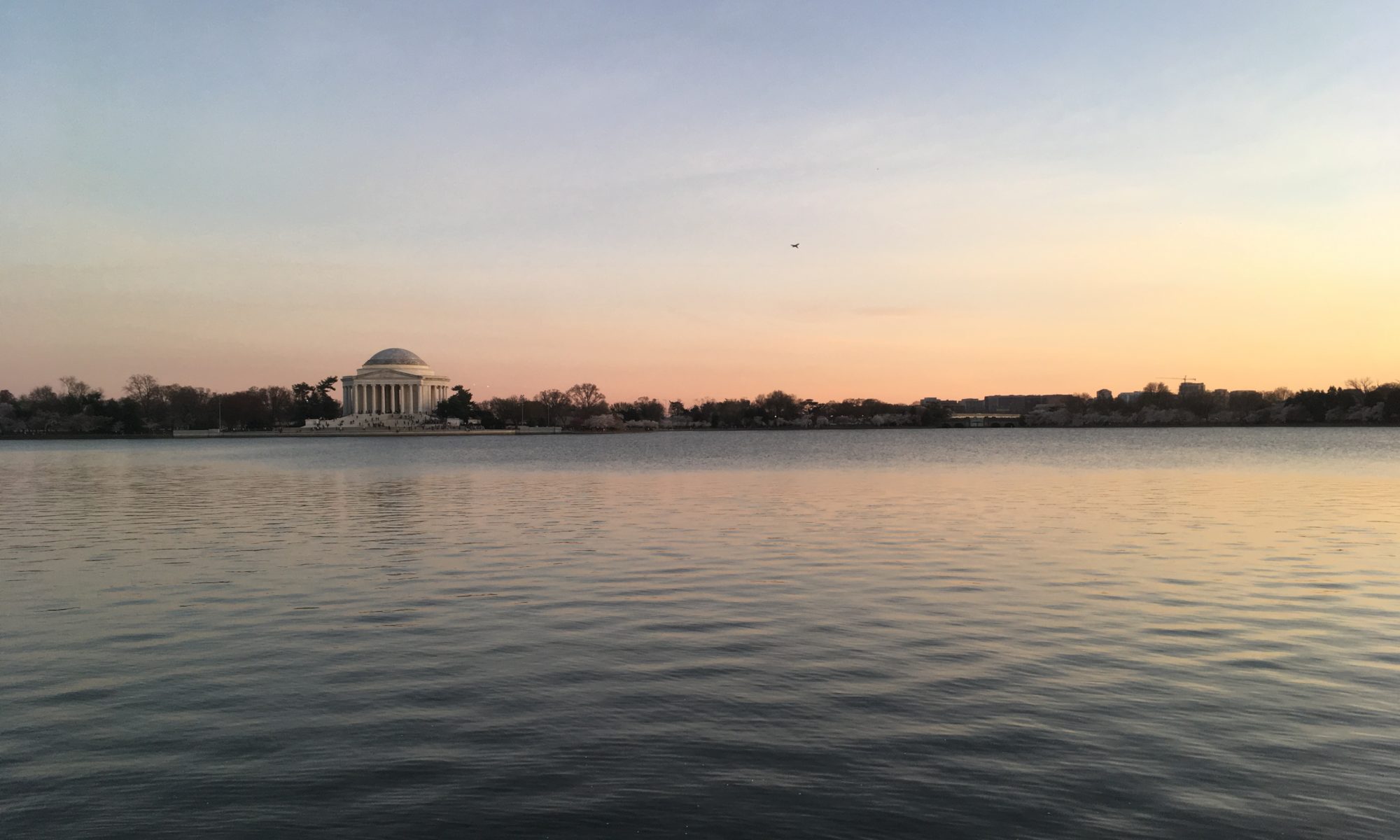“Thoughts on Wording Surrounding the BLM Movement”
Some of the phrases we have been hearing in relation to the BLM movement are difficult to convey in Japanese, and I wanted to really sit down and look into them. Here’s a Japanese blog post that explores some key phrases–what “Black Lives Matter” means, why we ought not to say “All Lives Matter,” how “defund the police” could be interpreted, and the difference between “Black” and “African American”–based on what I thought and learned from friends and other articles.

2020年でこれまでにないほど大きな動きとなっているBlack Lives Matter。今年の抗議が始まって3週間以上経ちますが、その波紋は広がるばかりで、今度こそ、全米、ひいては世界で画期的な変化につながることを期待しています。
日本語でもこの動きを解説する多くのリソースがあり、黒人でない私に更なる説明を行う資格はありません。しかし、報道等では伝わりづらい表現や言い回しがいくつかある気がしますので、言葉に焦点を当てて、 自分が今回考えたことや学んだことを少し述べたいと思います。
Black Lives Matter
このフレーズは非常に訳しにくく、日本の報道においても様々な表現を目にします。
まず、直訳して「黒人の命は大切」という表現を使っている報道を多く見受けます。ただ、「は」は、他の方の命は大切でないような、排他的なニュアンスがあると思います。そういった意図はこの動きにありません。SNSなどで流れている以下の画像がうまく説明していると思います。(下記のAll Lives Matterについての箇所もご参照ください)。

「黒人の命も大切」としている報道もあります。こちらの方が、実際のニュアンスに近いです。この動きを説明している英語の記事や本でも、口にはされないtooがあるのだと説明したり、括弧書きでBlack Lives Matter (Too) としたりしています。ただ、ハフポスト日本語版が「黒人の命も大切」と訳したところ、黒人の人たちが受けている差別を矮小化しているという意見もあったそうで、これもご指摘の通りだと思います。ここからは個人的な見解ですが、英語でtooを付けないのには、黒人の命が他の命と同等であるべきだからこそ、追加的に言わなければならないことではない、という意図があると思います。したがって、口にされていないtooを日本語で付けてしまうと、誤訳になってしまうのです。
「は」も「も」も違うのであれば、「が」を使うべきなのでしょうか。それぞれの助詞を使って「黒人の命〇大切」で簡単なウェブ検索をすると、「は」約33万件、「も」約19万件に対し、「が」はわずか4万件しかありません。正直、少し唐突に「が」を使っているような、文法的に不自然な感じは否めません。
個人的には、答えはmatterと言う言葉にあると思います。ここで「大切」と訳されているこの言葉は、より広く使われる important(重要)やvaluable(貴重)とは異なる意味があります。Matterという言葉は、「事柄として考慮すべき」という意味で、一見、importantやvaluableほど強く聞こえませんが、それは使われる状況が異なるからです。後者二つは、相手が特に先入観のない、白紙状態の会話で使われ、0からプラスの状態に持ち上げます。他方、matterは、相手が大切だと思っていないことに関して、「実は大切なんです」と訴え、マイナスの状態から上げていく言葉です。Matterが名詞としては「物質」や「案件」などを意味することを考えると、動詞としても「存在してないと思われていることが存在している」という意味が込められていると思います。黒人の方の命は、これまで軽視されてきました。400年前にアフリカから連れてこられた時から、奴隷として働いた時も、公民権運動の前も、その後もずっとです。あの警官はジョージ・フロイドさんを人間として見ていないから、首を膝で押さえつけたりすることができるのだと思います。したがって、Black Lives Matterは、「これまで軽視されていた黒人の命は大切」と言う意味になり、そこまで書き出すと、「は」が排他的に聞こえなくなります。(6月20日追記:背景も含むとこのような形になりますが、この長い言葉が最適な訳だと提案しているわけではありません。たとえば、こちらのNHKの記事には、より自然に聞こえる意訳がいくつか提示されています。)
こういった意味をすべて、Black Lives Matterというシンプルな3つの単語、抗議でも唱えやすい4つの音節に凝縮しているのはすごいことだと思います。正確な訳に関する議論は今後も続いていくでしょうが、これだけ大きな動きとなった以上、もはや毎度無理に訳さなくてもよいのではないかと思います。ニュアンスが一度伝われば、カタカナが一番誤解を生まずにすむかもしれません。また、そのような形で日本における外来語として皆に認識してもらった方が、日本においても着目すべき概念だということがより伝わるのではないかと思います。「命が大切」という、当然であるべきことを、わざわざ大々的に言って抗議しなければならない...それほど事態は深刻です。
All Lives Matter
日本語の記事や投稿がいくつか解説していますが、残念ながら、All Lives Matter(すべての命が大切)という言葉は適切ではありません。正直、初めてAll Lives Matterと言う言葉を聞いたときには、黒人でない自分も含まれている気がして、私も少し嬉しくなりましたが、その後この言葉に関する多くの解説を見て、それが間違いであることに気付きました。
前述のように、Black Lives Matter の言葉に排他的な意図はありません。「すべての命が大切」なのはいうまでもないのですが、黒人の命は軽く扱われてきたからこそ、こういった運動で黒人に特化した言葉ができています。そもそも、matterの意味を踏まえると、恵まれている人も含む「すべての命」とはそぐわないことが分かります。Black Lives Matterと同じ言葉を使って真似しているものの、その言葉の重みは考慮できていないことが明らかです。
今では、All Lives Matterという言葉が、せっかくのBlack Lives Matterを無に帰す、黒人の方に対して無神経な言葉だと言われています。All Lives Matterを口にする人には、善意から、黒人でない自分も動きの一部になりたいという方や、分断をなくし命の大切さを皆で一緒に語ろうという意思がある方も多いと思います。White Lives Matterという看板を持って練り歩く白人至上主義者とは全く異なります。しかし、このように、今の状況下ではAll Lives Matterと言う言葉はネガティブな意味合いを持ちます。
SNSで使われていた別の画像も添付します。黒人の人々が苦しんでいるときに言うべきことではなく、ましてや、彼らが経験してきた差別を知らない私たちが言うべき言葉ではありません。

別の例としては、こちらの漫画もあります。複数の家が並んでいる中で一つ燃えているとき、すべての家に放水するのは無意味なことですし、燃えている家への対応が遅れます。なお、この漫画は2014年のものです。その時から既に、もう6年も、All Lives Matterという言葉に対する説明がなされており、米国ではその認識がかなり浸透してきたように思います。今回、Black Lives Matterが世界全体に広がり、それとともに、悪意のないAll Lives Matterと言う言葉がまた人々の口に上るようになってしまったのかと思います。しかし、私たち個人がどれほどポジティブな形で解釈したとしても、それを今言うことは、黒人の方々の動きに水を差してしまうことになります。
Defund the Police??
抗議の次のステップとして、警察を今後どうしていくかということも話し合われています。スローガンとしてdefund the policeという表現が頻繁に使われていますが、このdefundという言葉は、米国で大きな物議を醸しています。英語でもほとんどの人がこれまであまり馴染みがなかった言葉(このブログを書いているワードプレスでも、スペルチェックに引っ掛かります)であるため、各々が異なる解釈を行っているのです。
CNN、アトランティック誌、ヴァイスなどの多くのメディアが、defund the policeが何を意味するのかという分析を行っています。アトランティック誌の記事の見出しは「『Defund the police』という言葉は、defund the policeという意味ではない。ただし、そういう意味の場合もある」(副題:「文字通り解釈すべきなのか?」)です。この言葉がどれほどの混乱を招いているかをよく示していると思います。
主要メディアに加え、オンラインの辞典であるdictionary.comも本件に関する記事を出しています。それによると、defundと言う言葉の定義は、to withdraw financial support from, especially as an instrument of legislative control(法的統制のツールとして、財政支援を止めること)とあります。また、「多くの活動家や研究者、一部の政治家によれば、defund the policeは、『お金の力を使って、これまでの漸進的な変化では達成できなかった制度的改革を行う』と言う意味」だとも書いています。
最初にこの言葉を聞いたとき、私は、資金停止はとどのつまり解体だということだと思い、あまりに極端だと思いました。実際、解体と言う意味で使っている活動家もいます。しかし、これらの記事を読んだり人の話を聞いたりすると、「政府やコミュニティ内に置ける資金の再分配」を指して使っている人が大半のようだということにも気付きました。何に分配するかというと、たとえば、上記CNNの記事で引用されているBlack Lives Matterの動きの共同創設者は、「これまで資金を取り上げられてきた黒人のコミュニティに投資し、これまで警察が対応してきた人たち(心の病やDVに苦しんだり、家がなかったりする人)に対する福祉サービス、学校や病院、住宅や食料の供給に使える」としています。中道派のバイデン大統領候補など、それも抜本的過ぎると考える人もいますし、賛成派の間でも、具体的に何に投資するかで意見が分かれることが容易に想像できます。こういった諸々の意見を踏まえ、警察を持つ自治体や政治家が、各々の対応を検討しているようです。
それにしても、もう少しいいスローガンはなかったのでしょうか。皆が合意できない言葉と言うのは、活動や抗議をしている人たちを分断させますし、それぞれの自治体においても、人々との話し合いに苦労するだろうと思います(フロイドさんを殺害した警官が所属するミネアポリスの警察は、いち早く本当に解体されることとなりましたが、ここまでの対応はなかなかないと思います)。私の知り合いには、demilitarize (非武装化)という言葉を使うべきだという人もいます。資金の削減が警察の武器を減らすことにつながるなら、今回まさに問題の一つとなっている警察の武力行使(フロイドさんはじめ黒人の方々のみならず、抗議者に対しても)をなくしていくことになるため、私もそれはいい案だと思います。
Black Lives Matterは、黒人が米国の警察に何度も殺害されていることに対する抗議運動として端を発したため、各地における警察の見直しは、大きな進捗だと言えます。黒人の親が子供に必ず警察への対応の仕方を教えなければならず、特に男性の命が危険に晒される状況には、本当に心が痛みます。他方、制度的差別があまりに根深く、社会のあらゆる側面に浸透しているため、目の前の具体的な問題(警察のことのみならず、南北戦争で南軍を率いた人々の像の撤去など)で進捗があっても、より大きな問題はなくなりません。今後論点がずれていったり、象徴的な進歩で大きな目標が見失われたりしないことを願っています。
BlackとAfrican American
Black Lives Matterの中心にあるBlackという言葉。恥ずかしながら、私は先日までこの言葉がAfrican Americanと同じ意味だと思っていました。正直、Black はもともと肌の色から来た言葉なので、自分がyellowと呼ばれたら嫌なように、その言葉自体、黒人でない私は言ってはならないのかと思っていました。また、子供の頃、正しい表現はAfrican Americanだと習った覚えがあったため、そちらを使うよう努めてきました。でも、これも間違いでした。
黒人の友人と話したところ、アフリカから移民してきたばかりの人はAfrican Americanと呼べるかもしれないが、自分のアイデンティティはBlackだと説明してくれました。先祖を辿って、アフリカから来たらしいということは分かっても、具体的にいつどこからといった詳細は分からず、個人的にアフリカとの絆を感じないとのことです。更に、黒人にはアフリカ以外の場所(たとえば西インド諸島)から来た人も、アメリカ人ではない人もいるため、そういった人たちも含めることができるBlackという言葉の方が包括的なのだそうです。(別の人が作成したこれらの画像も、この二つの言葉の違いをうまく説明していると思います。)
African American の方が正しい言葉なのかと思った、と友人に説明したところ、世代間のギャップはあるとの話でした。つまり、公民権運動を経験した彼女のご両親の世代は、黒を意味する差別的な古い言葉「ネグロ」から距離を置くため、African Americanを使っているそうです。若い世代の方がBlackという言葉に共感を覚えるのだそうです。
この話からいろいろと考えさせられました。私はアジア系アメリカ人としてのアイデンティティを持ち、日系人全体が比較的新しい移民だということもあって(日本からの最初の移民「元年者」は約150年前に来ました)、マイノリティのアメリカ人は皆「〇〇系」と呼べると勘違いしていました。黒人の方は、人によっては先祖が米国に来たのは400年前ですし、アフリカと距離があるのは当然ですよね。また、世代間のギャップや、自分が子供の時受けた教育と状況が異なることからも、言葉は生き物だということにあらためて気付かされました。
今私たちは、歴史的な動きの渦中にあると信じていますし、自分に何ができるかと考える日々が続いています。言葉という観点からも、これらのものが今後どのように進化していくのかを見続けたいと思います。












